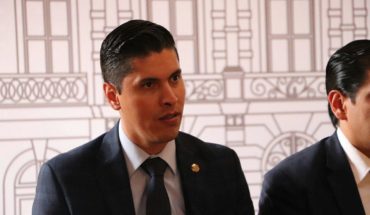On Wednesday, March 2, the plenary session of the Constitutional Convention approved the second report on Justice Systems, which included, among other things, legal pluralism. In any case, the rules that alluded to the creation and powers of the Council of Justice returned to the commission.
According to La Tercera, today, the commission continues with the deliberation in particular of the norms, where it was approved, among other things, the creation and conformation of the new body and a transitory article that eliminates military justice.
This new body will be “in charge of the appointment, government, management, training and discipline in the National Justice System”. It must also “appoint, after a public competition and by reasoned resolution, all the judges, officials and officials of the National Justice System.”
In addition, it will have to carry out “a comprehensive review of all the courts of the National Justice System”, in accordance with the provisions of the Constitution and the law, in addition to evaluating and qualifying, periodically, the performance of judges, officials and officials of the National Justice System.
Likewise, it was approved that the Council be confirmed by 17 members according to criteria of gender parity, plurinationality and territorial equity. As approved, the body would be composed of six full judges elected by their peers; three officials or professionals of the National Justice System, also elected by their peers; two members of the indigenous peoples and six members elected by Congress.
According to La Tercera, this generated a harsh debate among the conventionals, because some accused being against “the judges being a minority”, while others point out that the discussion is not yet finished.
The conventional Ruggero Cozzi (RN), said he was against the integration of the Council of Justice, because “judges are left in a minority situation, being 6 out of 17 members.” In addition, he said that “a bad design in this matter can weaken the independence of the courts, exposing the body to political capture.”
The constituent Christian Viera (FA), defends the Council because “it is composed of nine people who are part of the judicial world, far exceeds half of its members, can it be corrected? Maybe. And we will have to listen to the voice of the plenary on the matter. The number of members raised are not definitive.”
In parallel, a new transitional provision was voted that was presented by Ingrid Villena (Constituent People), Manuela Royo (Constituent Social Movements), Mauricio Daza (Independents for a New Constitution), Tomás Laibe (CS), Hugo Gutiérrez (Communist Party) and Natividad Llanquileo (Mapuche People) and represents the end of Military Justice.
The deposition reads that “the military courts established in Book I of the Code of Military Justice shall cease to function once the processing of their current cases is completed.” In addition, it will be the law that establishes “the way in which the provisions of the previous paragraph will be specified,” he concludes.
Constitutional Convention Commission approves creation of the “Council of Justice” and eliminates military justice
March 8, 2022 |





